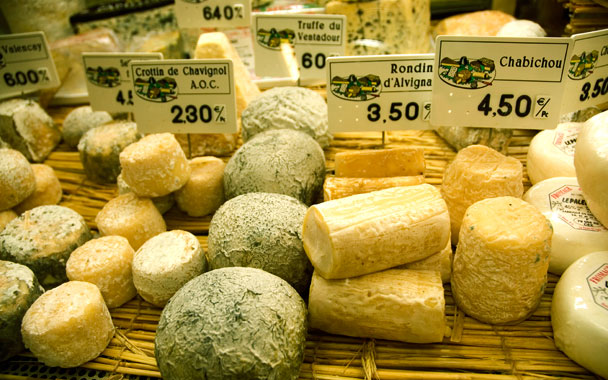Pouvoir d’achat—buying power—is the rallying cry for the most radical reforms governing French retailing since the end of World War II. President Nicholas Sarkozy has made it a priority to dismantle the amazingly rigid laws that complicate the simple act of buying and selling in France. A good example: Annual clearance sales are restricted by law to January and June or July—for everyone. If a retailer reduces prices too much at any other time, he or she can be prosecuted for unfair competition. The reason this arcane branch of French law is such a hot potato right now is because the country’s beleaguered consumers have been hit by the same double-whammy of rising food and energy costs that has blindsided most other Western economies.
Okay, here the plot thickens. The government wants to facilitate the construction of more hypermarchés (large-scale discount stores), along with smaller “hard-discount” shops (the burgeoning retail sector of supermarkets specializing in house and super-discounted brands) including the French Ed chain and the German company ALDI. Why do you care? Fast-forward a few years and the odds are that the retail landscape in most French cities will be radically different. The proverbial butcher, baker, candlestick maker, cheese merchant, and fishmonger that give France such an appealing culinary culture are likely to take it in the teeth. Many of these small shops simply won’t survive the brutal competition unleashed by a major expansion of mass-market food retailers, which means France could very well end up like Britain, where hundreds of small food shops that once stocked a range of regional produce have closed in the last 20 years. If the domestic market for small French producers drops off, the result will be a dramatic change in the way France eats and cooks, with an obvious reduction in the quality of the country’s larder as the deck is restacked to favor large-scale industrial outfits.




 Pinterest
Pinterest


